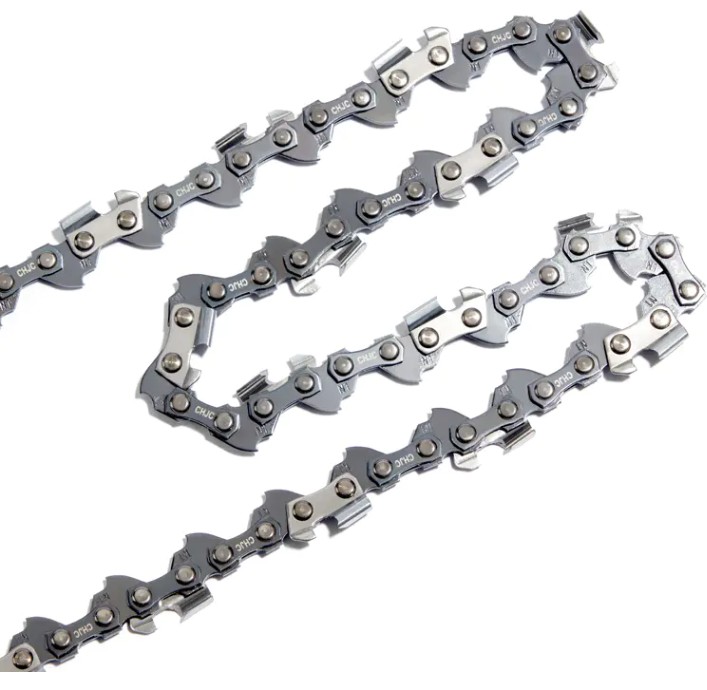The gauge of a 3/8" LP (Low Profile) saw chain is a critical factor that influences its durability, strength, and overall performance. Understanding the impact of gauge on these aspects is essential for selecting the most suitable chain for various cutting tasks and ensuring efficient and safe operation of chainsaws.
Firstly, let's delve into the concept of gauge in the context of a saw chain. The gauge refers to the thickness of the drive links that fit into the guide bar groove. It plays a crucial role in determining the fitment compatibility between the chain and the guide bar, as well as the overall stability and strength of the chain during cutting operations.
One of the primary considerations when evaluating the impact of gauge is durability. Chains with a thicker gauge, such as 0.050" or 0.058", are inherently more robust and resistant to bending, flexing, and wear. This increased durability makes them well-suited for heavy-duty cutting tasks, such as felling large trees or processing hardwoods. Thicker-gauge chains can withstand higher loads and stresses without succumbing to premature wear or breakage, ensuring reliable performance in demanding conditions.
Strength is another crucial aspect influenced by the gauge of the saw chain. Chains with larger gauges have a greater cross-sectional area, providing enhanced strength and stability during cutting. This extra strength enables the chain to maintain its cutting performance and integrity when subjected to high loads or challenging cutting conditions. As a result, thicker-gauge chains are preferred for applications where durability and strength are paramount, such as forestry, logging, or professional tree care.
Compatibility is also an important consideration when selecting the gauge of a saw chain. Chainsaw manufacturers specify the compatible gauge for each chainsaw model to ensure proper fitment and optimal performance. Using a saw chain with an incompatible gauge can lead to issues such as poor fitment, reduced cutting efficiency, or increased wear on the guide bar and chain components. Therefore, it's crucial to adhere to the manufacturer's recommendations and select a chain gauge that is compatible with your chainsaw model.
In addition to durability, strength, and compatibility, the gauge of the saw chain can also influence cutting performance. Thicker-gauge chains typically offer more stability and precision during cutting, resulting in smoother and more controlled cutting action. This can lead to improved cutting accuracy, reduced vibration, and enhanced user comfort, particularly during prolonged cutting sessions. However, thinner-gauge chains may provide greater maneuverability and agility in certain cutting applications, making them suitable for lighter-duty tasks or precision cutting.
Maintenance requirements are another aspect affected by the gauge of the saw chain. Chains with larger gauges tend to be more durable and require less frequent sharpening or replacement compared to chains with smaller gauges. However, they may also generate more friction and heat during operation, leading to increased wear on the cutting teeth and guide bar. Therefore, it's essential to strike a balance between gauge size and maintenance considerations based on the specific cutting tasks and operating conditions.
 English
English
 中文简体
中文简体
 русский
русский



















